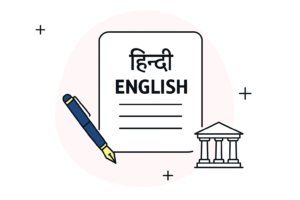General Knowledge is the backbone of success in the judiciary exams. It’s not just a subject, but a gateway to showcasing your intellectual acumen and overall knowledge. Whether it’s static GK or staying updated on current affairs, mastering this section is a game-changer.
This guide will explore strategies, resources, and tips to make General Knowledge your key to success in judiciary exam preparation.
1. Understand the Power of General Knowledge
The Importance of General Knowledge
The General Knowledge paper tests your awareness across history, geography, polity, economy, science, and current events.
- Strong performance in this section brings you closer to your goal of becoming a judicial officer.
- Success here is about connection, context, and clarity, not just memorization.
2. Master the Two Dimensions of General Knowledge: Static vs. Current Affairs
Static GK
- These are timeless facts, such as Indian history, geography, polity, and culture.
- Since these concepts don’t change, they form the foundation of your GK preparation.
Current Affairs
- This tests your ability to stay updated on recent events, including national and international politics, sports, science, technology, and more.
- It measures how engaged you are with the world around you.
3. How to Master Static GK: Books, MCQs, and Consistency

Building a Strong Foundation
- Dive into trusted books like NCERTs for history, geography, and culture for a solid base.
- Consistency is key, study and revise regularly, solve MCQs from test prep books and online platforms to reinforce your learning.
Pro Tip
- Practice regularly to improve retention and accuracy.
4. Stay Ahead with Current Affairs: Newspapers & Magazines
Key Resources for Current Affairs
- Reading newspapers like The Hindu and The Indian Express is a must for staying updated.
- Use monthly magazines like Pratiyogita Darpan for in-depth coverage of important events.
Why Stay Updated?
- Current affairs add depth and context to your answers, making you appear well-informed and engaged with ongoing legal trends.
5. Make GK a Daily Habit: Consistency = Success
Create a Routine
- Dedicate specific time every day to GK, whether it’s reading newspapers, revising Static GK, or solving practice questions.
- Make GK a part of your daily study schedule.
Pro Tip
- Allocate at least 1-2 hours a day to GK, just like you would for any other subject.
6. Cultivate Curiosity: The Secret to Deep Understanding
Adopt a Curious Mindset
- Approach your study with curiosity, aim to understand the context, implications, and significance of events, not just memorize facts.
- This will not only help in exams but also in building the mindset of a well-informed judge.
7. Practice with Previous Year Papers: Your Roadmap to Success
Analyze Previous Papers
- Reviewing past question papers helps you:
- Identify recurring topics
- Understand exam patterns
- Spot commonly asked questions
Benefit
- This practice helps streamline your preparation and focus on what matters most.
8. Create Personalized Notes for Maximum Retention

Importance of Personal Notes
- Summarize key points, create bullet lists, and highlight important information.
- This makes revision easier and helps retain information better.
Pro Tip
- Writing your notes in your own words strengthens your understanding and improves recall.
In Conclusion: Your Key to Cracking the Judiciary Exam
Your Competitive Edge
A strong General Knowledge section is your competitive advantage in the Judiciary Exam. By focusing on both Static GK and Current Affairs, building a consistent study routine, and leveraging trusted resources like Edzorb Law, you’re setting yourself up for success.
Pro Tip
- Avoid procrastination, stay disciplined, and maintain a curious mindset. Your success is just a step away!
Ready to Dominate the General Knowledge Paper?
Edzorb Law is here to guide you through your preparation with comprehensive study materials, mock tests, and flashcards.
Let us help you ace the General Knowledge paper and get one step closer to your dream of becoming a judge.

 Podcast
Podcast








 Features
Features






